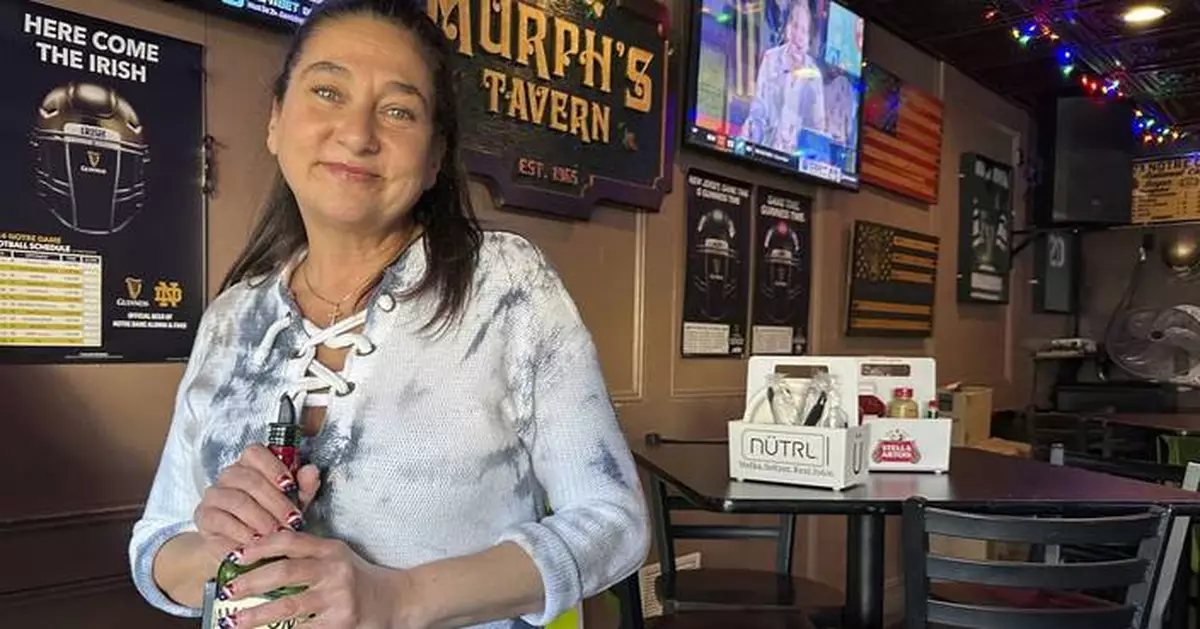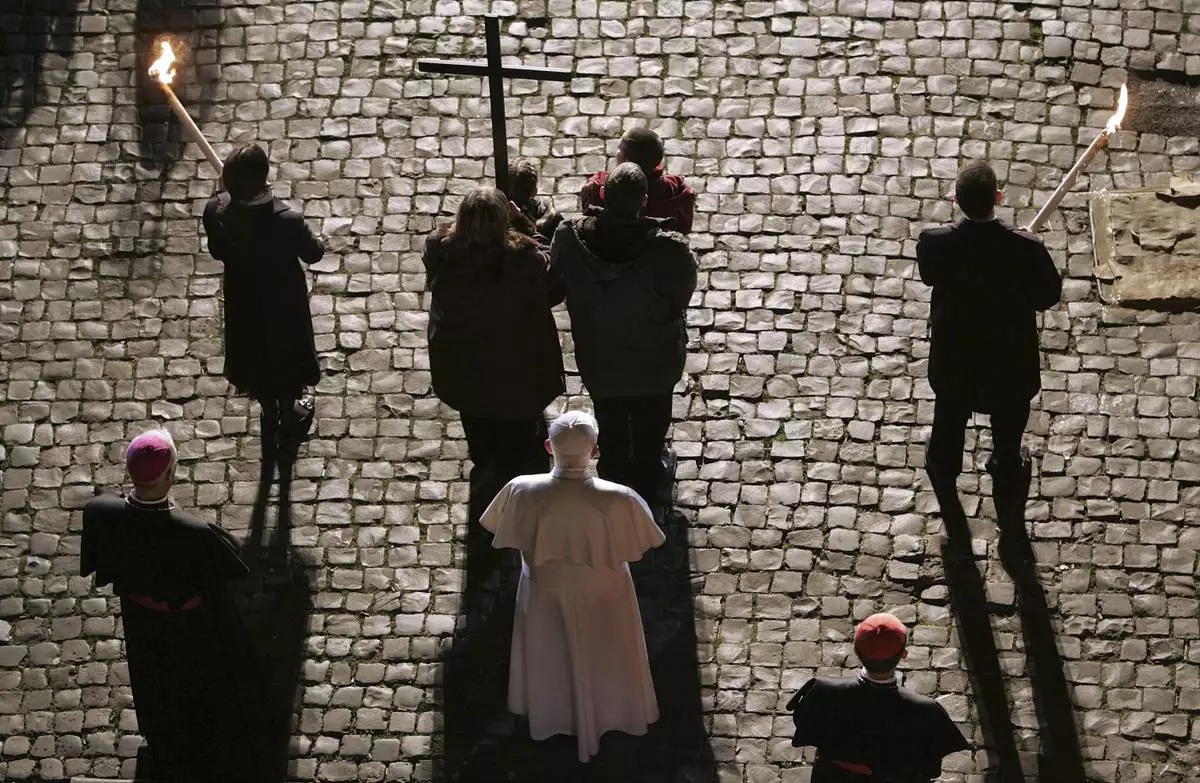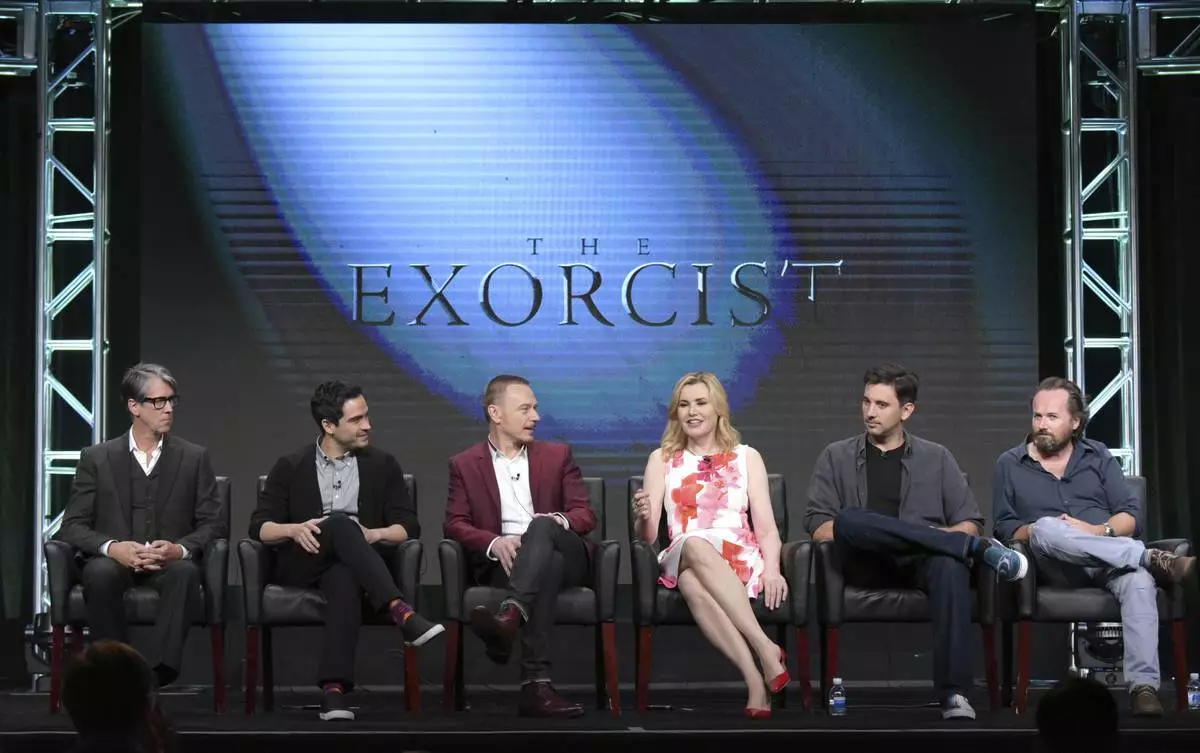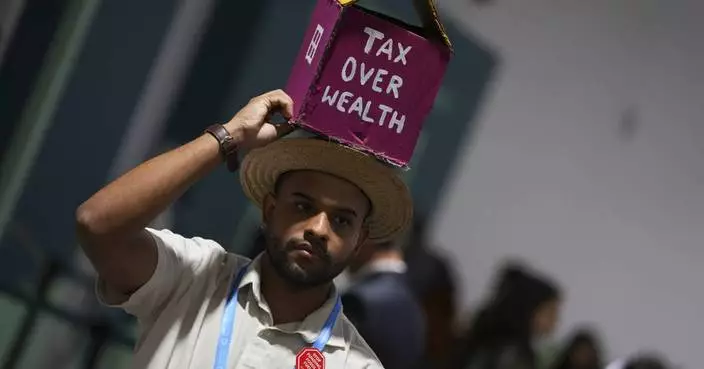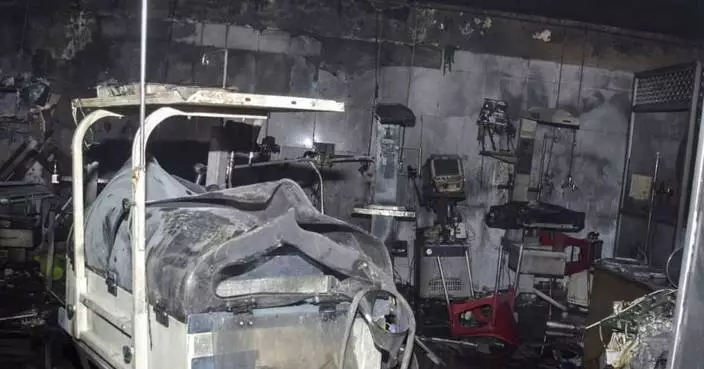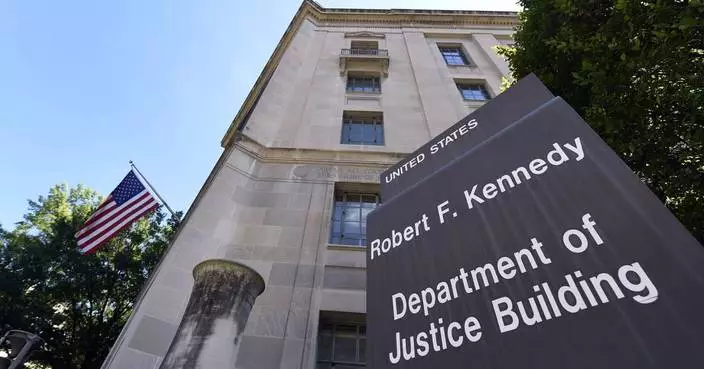TOTOWA, N.J. (AP) — Patrons at Murph's Tavern are toasting not just Donald Trump's return to the presidency but the fact that he carried their northern New Jersey county, a longtime Democratic stronghold in the shadow of New York City.
To Maria Russo, the woman pouring the drinks, the reasons behind Trump's win were as clear in the runup to the election as the shot glasses lined up on the high-top tables. A mother raising two kids on her own in Passaic County on a barkeep's income, she saw it not just in light of her own situation but those of the people around her.
“Anybody can see what’s going on, you know? The prices of everything. And me being a single mom?” she said. “I notice that when I go shopping – just like everybody else does.”
Although Trump's win once again reflected a deep political divide across the United States, he made inroads in surprising places. From the suburbs of New Jersey to Rep. Alexandria Ocasio-Cortez’s New York City congressional district to reliably liberal Hawaii, Trump gained ground even as support for Kamala Harris, the Democratic presidential nominee, dropped off.
AP VoteCast, a far-reaching survey of more than 120,000 voters nationwide, found that Trump made substantial gains among Black and Latino men, younger voters, and nonwhite voters without a college degree, compared with his 2020 performance.
Common themes emerged in the AP VoteCast data. Voters were most likely to see the economy and immigration as top issues facing the country. More voters said their family's financial situation was “falling behind," compared with 2020. When they voted, Trump supporters were thinking about high prices for gas, groceries and other goods and the situation at the U.S.-Mexico border.
Even in Hawaii, dominated by Democrats since the 1950s when labor unions organized sugar and pineapple plantation workers who built the state’s middle class, Republicans had commanding victories.
In West Oahu, for example, where many plantations have given way to suburban development, school teacher Julie Reyes Oda, a Republican, flipped one state House district in the heavily blue-collar, working-class town of Ewa Beach. In the district next door, state Rep. Diamond Garcia held on to a seat he turned Republican two years ago. Democrats still control supermajorities in both chambers, but the GOP’s nine House and three Senate seats are the most the party’s had in the Legislature since 2004.
Newly elected Republican state Sen. Samantha DeCorte said voters in her Waianae district west of Honolulu have long been frustrated by a lack of resources for basic needs such as public safety. Residents feel like they have to look over their shoulders when they are pumping gas, DeCorte said.
“They don’t want to go to the grocery store at night because they have to walk back to their car in the parking lot," she said.
Economic concerns, including the high cost of housing, may have figured prominently in the thinking of some Hawaii voters. On an island where the median cost of a single-family home tops $1.1 million, many people, including large numbers of Native Hawaiians, have been forced to move to the continental U.S.
In New Jersey, AP VoteCast showed that Trump grew his support among nonwhite suburban voters and younger women, in addition to the demographic swings that showed up nationally. In New York, the survey showed especially large movement toward Trump among nonwhite men without a college education, although a majority of that group still supported Harris, the vice president.
About half of New Jersey voters said Trump would better handle the economy, according to AP VoteCast, while about one-third said this about Harris, giving him a slightly bigger advantage on the issue there compared with national numbers.
Few places better demonstrated Trump’s strength in traditionally blue areas than Passaic County, where Trump became the first Republican presidential candidate to carry the county in more than three decades.
Interviews with voters and experts suggest Trump’s hammering on the economy influenced how people voted or whether they stayed home.
“Those people taking the subway into Manhattan, they live in a very different world than those people who live in Manhattan,” said Richard F. Bensel, a political historian at Cornell University. “They live in very different worlds in terms of the pressures that they feel, challenges that they feel in life, and they don’t want to be preached to.”
Sebastian Giraldo, a member of the Air Force stationed in Del Rio, Texas, who was home in Queens on leave recently, said it was a “no brainer” to vote for Trump despite having supported Democrat Joe Biden four years ago.
“Just the current trajectory of the United States these last four years have obviously been downhill,” he said. “I mean, for everybody, I think it’s been harder to live. The grocery shopping, buying clothes and gasoline. Just living.”
Ramon Ramirez-Baez, a 66-year-old writer and community activist in the Queens borough of New York, said he voted for Trump and encouraged others to do so despite being a registered Democrat who had voted for Democrats in the past four presidential elections and even ran unsuccessfully for the Legislature as a Democrat.
The native of the Dominican Republic, who came to Queens more than three decades ago, blamed Biden administration immigration policies for the explosion of prostitution, illegal brothels and unlicensed food carts that have bedeviled his neighborhood in recent years.
The White House’s position on the war in Gaza peeled away some Muslim voters in key swing states such as Michigan, and it cost them elsewhere, too.
Selaedin Maksut, executive director of the Council on American-Islamic Relations in New Jersey, said he voted for Green Party candidate Jill Stein over Harris, though he backed other Democrats.
“It’s a protest vote,” he said. ”We’re not going to just give you our vote.”
In New Jersey, U.S. Rep. Andy Kim, who previously captured a House district claimed by Trump in 2020, carried Passaic County in his winning Senate race. It shows, he said in an interview, that people see local and state issues differently than national ones. He said voters have told him they appreciate his focus on “broken politics."
“If these are people who are distrusting of government, I think my message is saying, like, look I am also frustrated with how things are happening."
Ocasio-Cortez, like Kim, invited split-ticket voters to weigh in on social media about how they could back both Trump and her. That resonated across the Hudson River in New Jersey, where John Coiro, a patron at Murph's and a Trump supporter, said he respected her for asking the question.
Trump’s performance could force a reckoning among Democrats in places where they are accustomed to winning regularly.
Ralph Caputo, a former state legislator from northern New Jersey, said Trump, unlike Democrats, connected with different groups of voters. Trump was sharper, too, Caputo said, because he had been tested in the primaries, something Harris did not face because of Biden's late withdrawal from the race in July.
“Those days are over where you just put somebody up for election and think they’re going to win because they’re on a Democratic ballot,” Caputo said. “They can’t win automatically.”
Associated Press writers Anthony Izaguirre in Albany, New York, and Amelia Thomson DeVeaux in Washington contributed to this report.
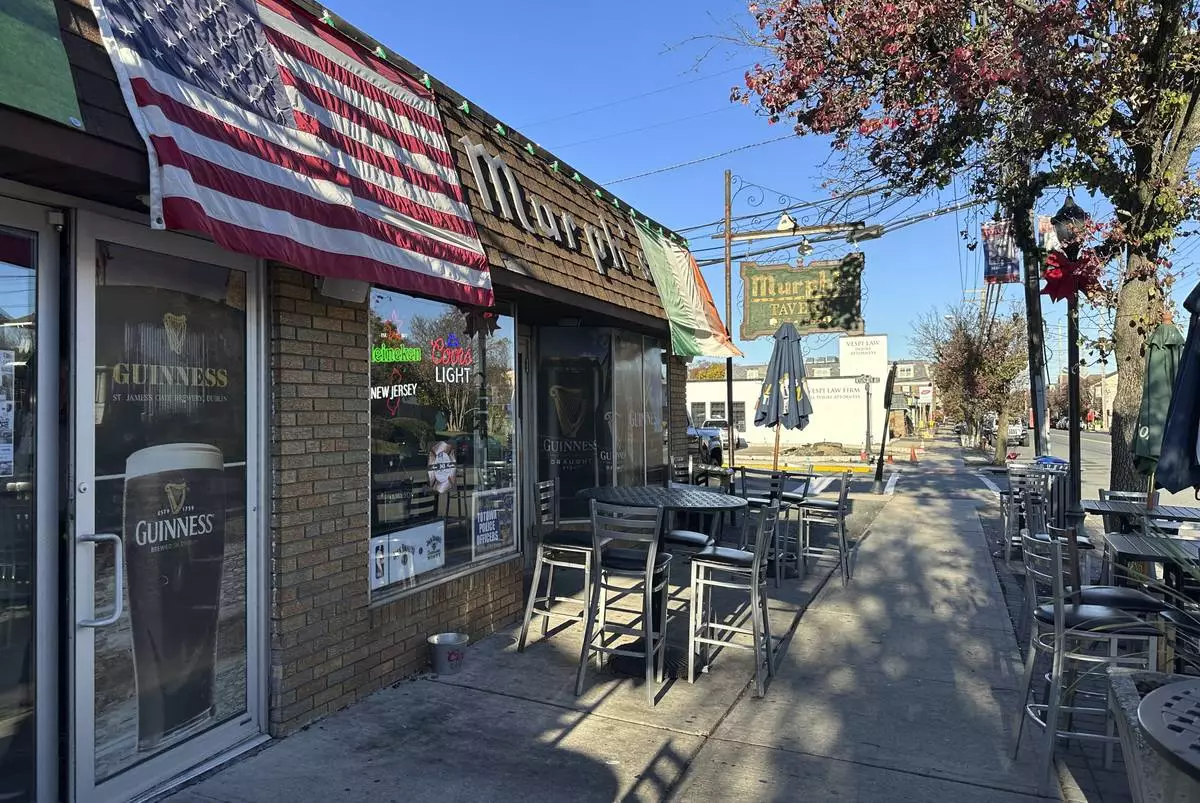
Murph's Tavern, owned by Peter Murphy, the GOP chairman of Passaic County, New Jersey, is in the heart of Totowa, N,J., in Passaic County, which went for President-elect Donald Trump in the election. It was the first time in more than three decades the suburban New York county went for a Republican. (AP photo/Mike Catalini)
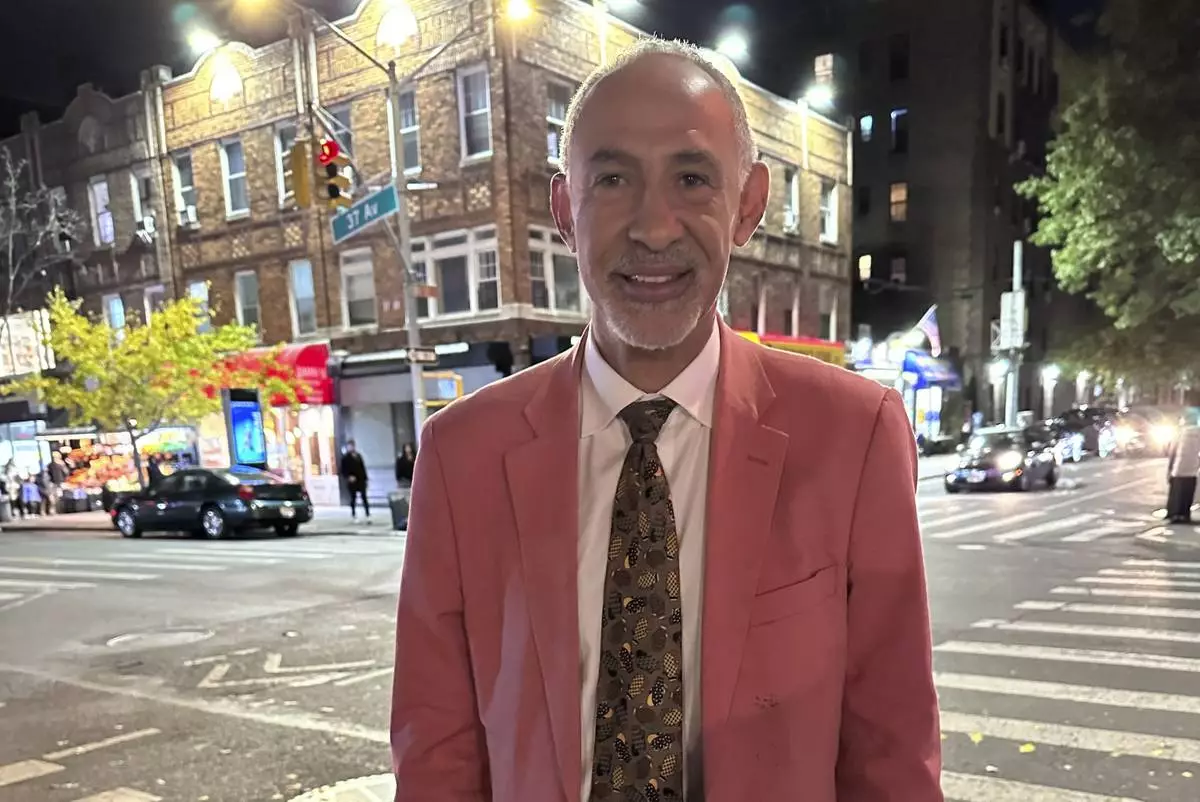
Ramon Ramirez-Baez, a voter in Jackson Heights, a neighborhood in the New York City borough of Queens, that is a part of Rep. Alexandria Ocasio-Cortez, D-N.Y., district, poses for a photo on Nov. 12, 2024. (AP Photo/Philip Marcelo)
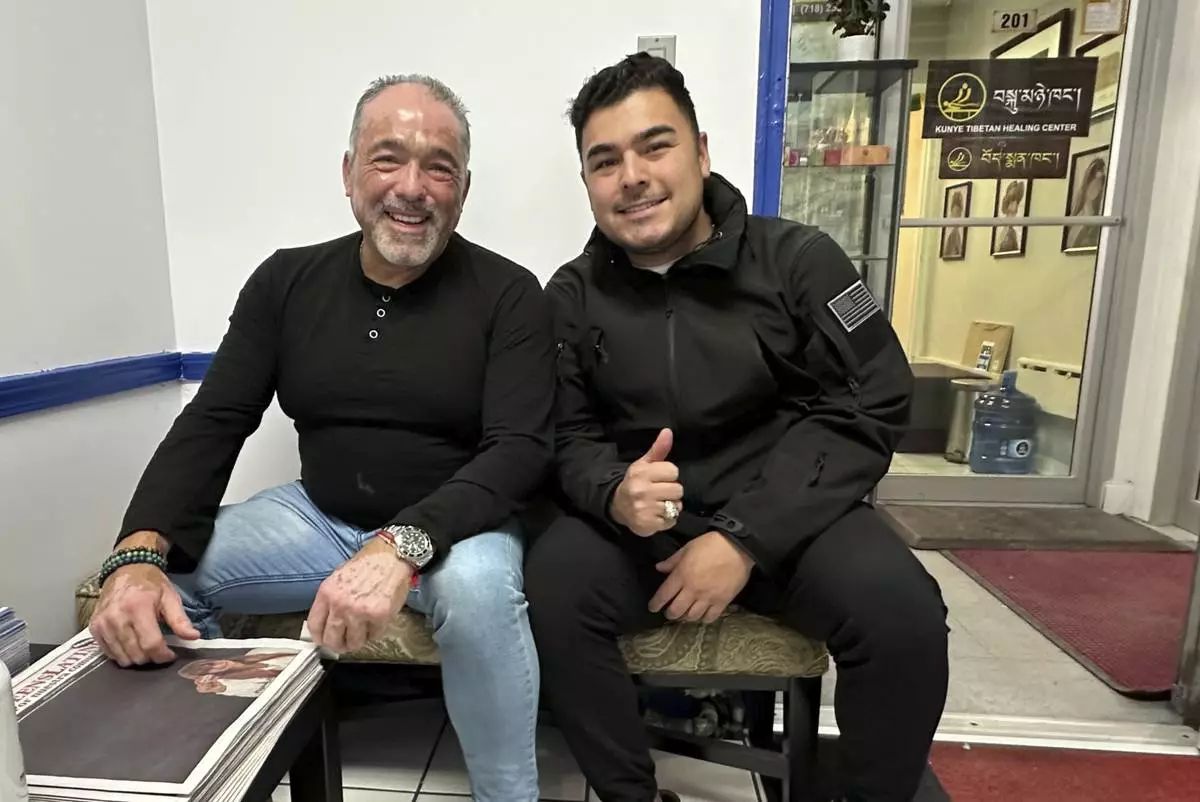
Eduardo Giraldo, left, and Sebastian Giraldo, voters in the part of the New York City borough of Queens that is represented by Rep. Alexandria Ocasio-Cortez, D-N.Y., pose for a photo on Nov. 12, 2024. The elder Giraldo, who owns an insurance business, voted for Vice President Kamala Harris, but his 24-year-old son, who is in the Air Force, voted for President-elect Donald Trump. (AP Photo/Philip Marcelo)
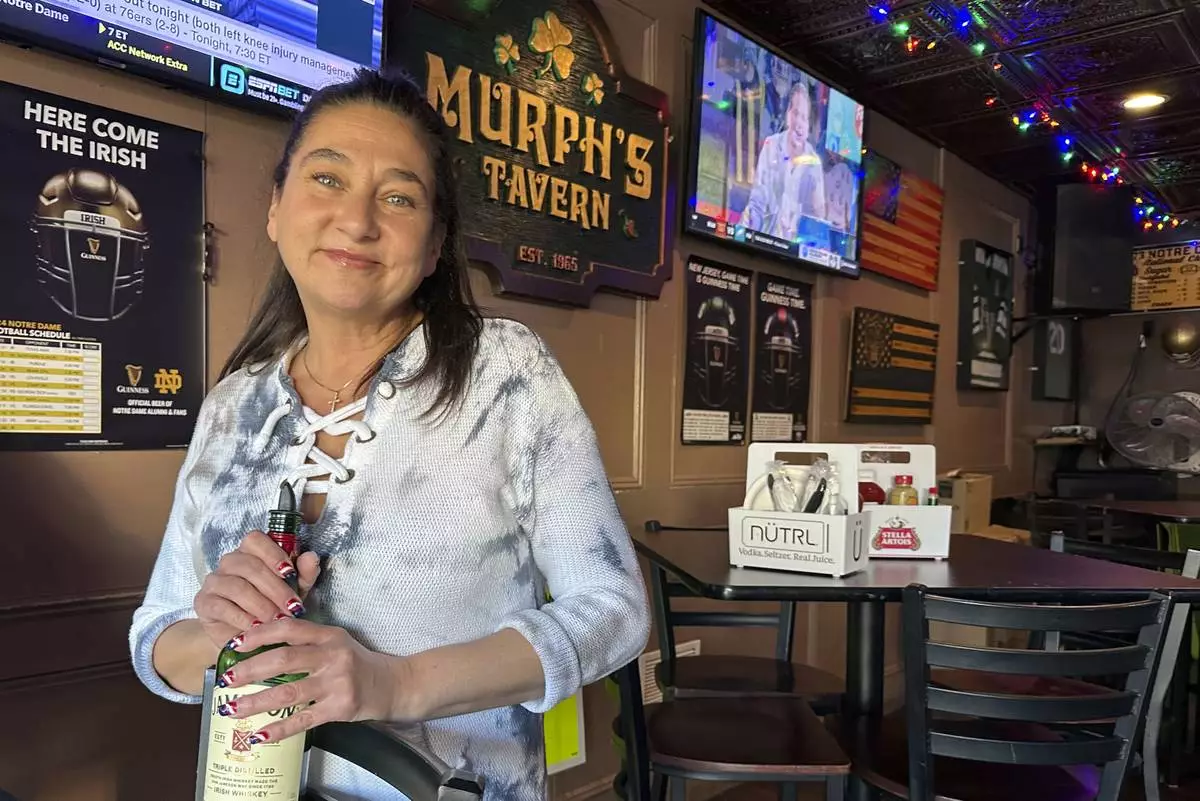
Mara Russo, a bartender at Murph's Tavern in Totowa, N.J., speaks about why she supported President-elect Donald Trump in 2024. Totowa, in suburban New York's Passaic County, went for a Republican for president for the first time since 1992. (AP photo/Mike Catalini)


